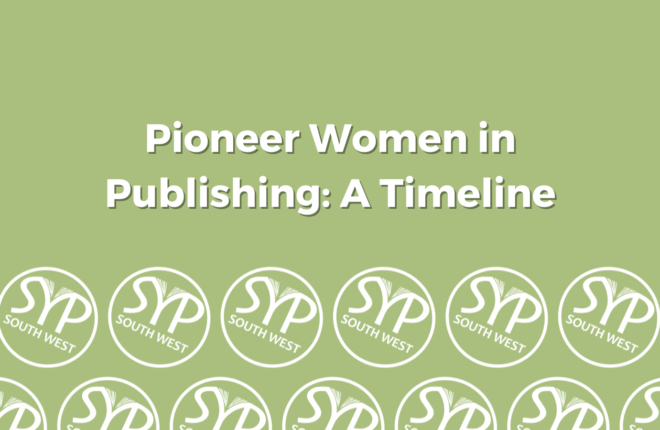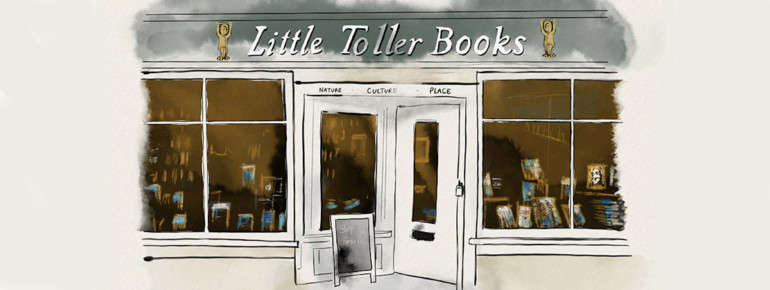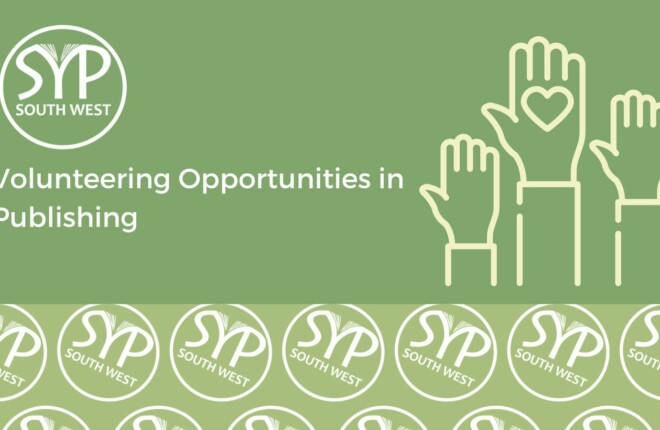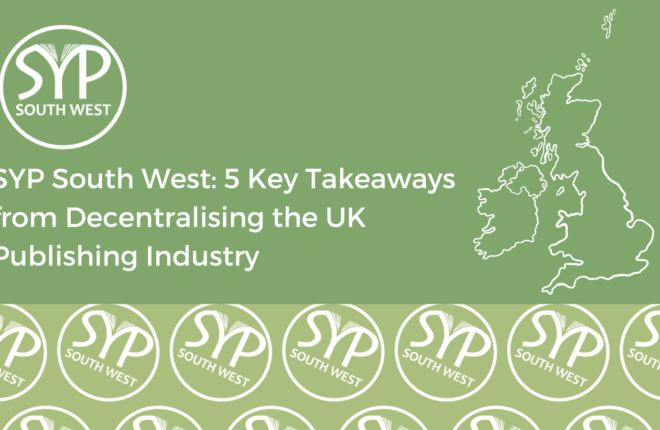
SYP South West spotlight on: Little Toller Books
Posted on August 19, 2022 in South West

The SYP South West team caught up with Adrian Cooper from Little Toller Books to talk about indie publishing, the importance of local bookshops and how the publishing house came to be. Little Toller Books and the Little Toller Bookshop can be found in Beaminster, Dorset, and online here.
Eleanor Gaffney: Okay, so, the first question is: how did Little Toller come to be and what kind of books do you publish?
Adrian Cooper: Well, we started in 2008 as a really singular project, which was to reinvigorate old books which had gone out of print that focused on nature and landscape. It was a project to republish what we saw or what we tried to shape [into a] would-be classic library of nature writing. This was still a time when nature writing in British literature wasn’t really – although there’s a very long history of [that sort] of writing – as defined at the time as it was in somewhere like America. [In British libraries and bookshops] they would have lots of different categories and you’d find books in different parts of the bookshop rather than having a singular place that you could find them.
We went about very simply. We published three books to start with because [when] first starting out, you need to do more than one to make an impression with booksellers. We introduced them with lovely new covers, usually specially commissioned artwork which was done by the younger generation of artists. It also included a new introduction by a contemporary writer who is reasonably well known to people [and] would connect with the idea of reading this book through the artwork and through the following that that particular author had at the time. So it was fairly straightforward as a way of starting.
But because neither of the two of us, Gracie [and] myself, had any previous publishing experience, it was quite difficult initially to get in touch with bookshops. I mean, [we] literally had to just phone those up and just sell directly to them. And then we had [the books] printed and didn’t have a warehouse, so we had to just sort of send the books out directly into the bookshops ourselves. So when you start a small publishing company, you do everything yourself. And because you haven’t got the revenue to pay other people to do stuff for you, you learn absolutely everything across the board, from proofreading to marketing to the distribution side of things. But then as things develop and grow, it becomes more difficult for you to do everything so you have to bring in other people to support you.
We did three books in the spring of 2008 or 2009 and then I think in the autumn we [published] another three, and then the following spring another three until we had enough to be called a library. And I suppose from that we started to get quite decent coverage in newspapers. The Guardian was great because they had this one section where they were to revisit a particular book, and I think we were doing that perfectly. So they supported us a lot and then it just grew from there. And I think in 2012 we were able to get all the books into a distributor, which was in London at the time, and they took away a lot of the administration of sending books out to bookshops and invoicing and all that sort of stuff. So once that’s removed, you can do slightly more things yourself.
We were able to commission new books from writers that initially had done introductions for the classics books for us. We were able to have that kind of conversation directly with them [as] they already knew us [and] knew what we were doing. It is always easier when you’re trying to work with authors if you have some sort of relationship already established. And then from that we would then get approval for reprints from other authors and agents and it just started to grow from there really. And you’re then operating much like any other publisher where actually you get too many submissions and too many approaches really to cope with, but it does give you a variety of voices and ideas. We started an online journal to absorb a lot of that sort of stuff: so if people approached us with interest in doing something, if it’s not quite right for publishing a book or whatever, we try and work with them in some way to do an essay or something for our online journal.
So now we have an online presence and we publish quite a few books every year, probably a dozen or so now. Some of those [are] often reprints, but at the moment we’re focusing on new writers, new pieces of work, which is very rewarding. But there’s a lot of work as well because people often need a lot of support and nurture if they haven’t written before.
EG: That’s brilliant. I feel like you’ve answered most of my other questions already! What advice would you have for someone looking to get into publishing?
AC: If you’re a writer or you’re interested in publishing, I would definitely encourage people to think about setting up their own small press because although financially it’s not a very solid or stable thing, it does give you another perspective of the whole publishing industry, and especially if you can kind of learn yourself from the grassroots. I think if you’re able to kind of cast yourself across different ways of thinking, even if you then work for a bigger publisher or do something different, it just gives you that nimble thinking as needed all the time and that resilience to get through things. And it’s just a nice thing to do because, as long as you’re clear about what your publishing mission is and it’s something which isn’t already being done by somebody else, then it’s not that complicated. You really just need good people writing or working with you, a decent local printer and a list of independent bookshops to start with, because they’re more likely to support you than the bigger bookshops. So it’s a good way to start with the indies.
There’s much lower overheads and much fewer editorial decisions to be made. It’s less complicated. So inevitably what happens is the production quality of the things that you do is much better, and people notice that. And it is (by definition, because you’re the one driving it) going to be different from whatever other people are doing. You need to obviously have a sense of where it sits culturally and understand why it’s needed in that sense, what it’s doing, what new voices or new ideas it’s bringing to people. But other than that, it can be a very nice way to start developing your publishing career because it does give you a complete overview of the processes in a way that if you work for a big publisher, you’ve never going to appreciate really. Whereas if you either work with or for a small publisher, or start your own, then you’ll be doing everything. And I think that’s a pretty good grounding, to be honest.
EG: One thing I did want to ask was: could you tell me about the Little Toller bookshop? Did the bookshop spring from the publishers or was it the other way around?
AC: The bookshop came two years ago and it was really out of necessity because we needed an office. So it has offices upstairs and the bookshelves downstairs. There’s a couple of other publishers who do have bookshops and it’s quite a nice presence on the high street. I mean, running an independent bookshop is pretty tough in its own way. There’s not a huge amount left over from all the hard work that you do to invest into new stock and stuff like that. [It is] probably just about sustainable. It’s something which I suppose from a business point of view kind of adds that dimension to what you’re already doing; a sense of identity. Commercially it probably doesn’t make that much sense, but it’s something which I think we’ve all really enjoyed because it connects you with the community where you live in a way that often in publishing you don’t; you might do the odd event and things like local festivals, but you’re really trying to reach a national audience because if you can reach a national audience you can start [to help] the book to take off, so your conversation is all over the place. Whereas if you have a bookshop, you’re much more local. And that means that you start to understand why bookshops are so important in communities; [they’re] something which are very different to other kinds of shops. They’re not just purely there to make money. There’s much more to them than that, [they’re] kind of a public service, really.
Adrian Cooper is an Editor at Little Toller. Little Toller is an award-winning indie publisher of new and classic writing on place, nature and culture, including Diary of a Young Naturalist by Dara McAnulty, winner of the 2020 Wainwright Prize for Nature Writing.
https://www.littletoller.co.uk/
@LittleToller




 Listen to the podcast
Listen to the podcast  Explore the Youtube channel
Explore the Youtube channel